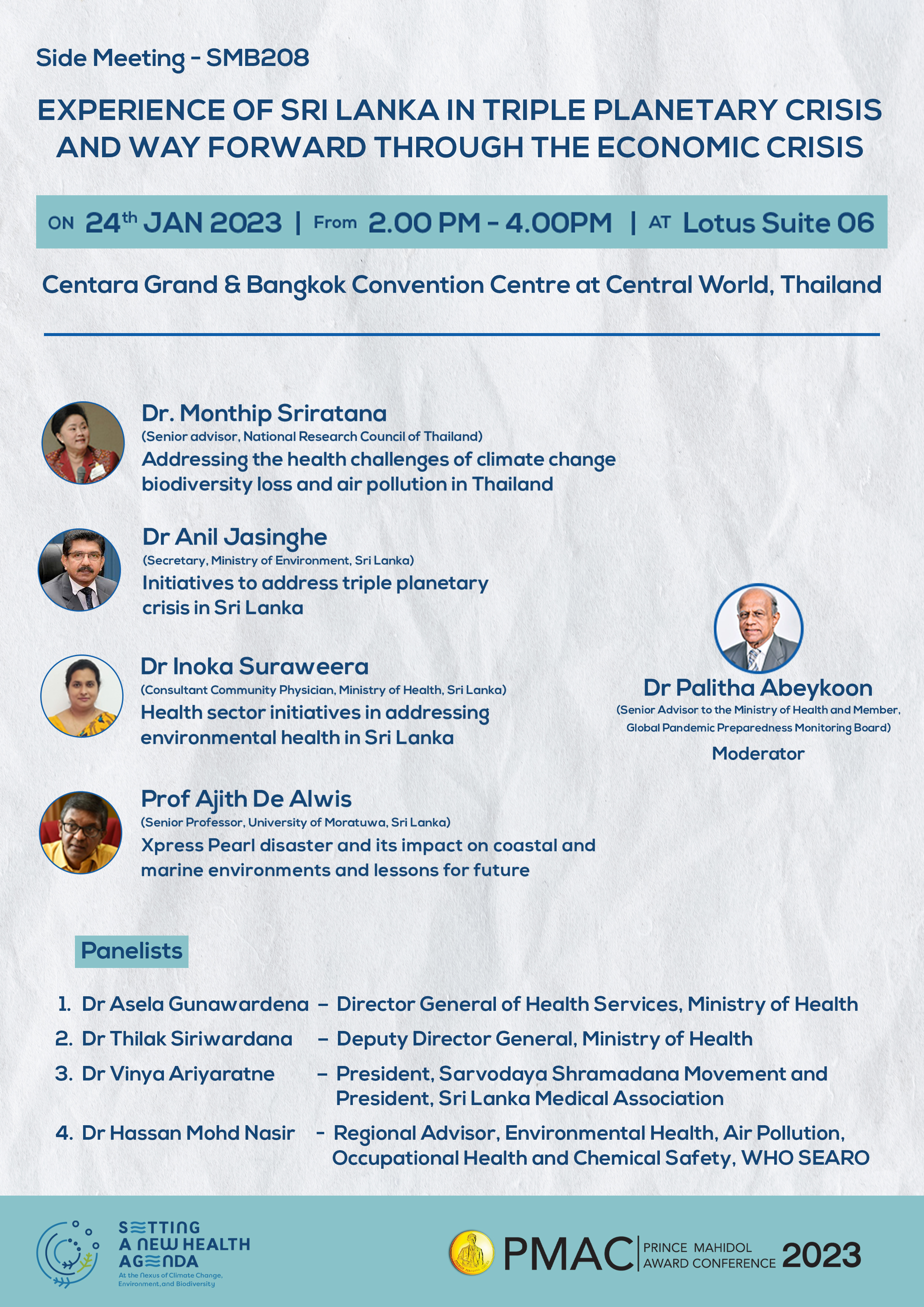Side Meetings
SMB208
Experience of Sri Lanka in Triple Planetary Crisis and Way Forward through the Economic Crisis
24
Jan
- Ministry of Health - Sri Lanka
- Ministry of Environment - Sri Lanka

Climate and biodiversity are inextricably connected with each other and with human future. Human population increase, industrialization, and geopolitical problems accelerate global changes causing significant damage to biodiversity, extensive deterioration of ecosystems, and considerable migratory movement of both mankind and species in general. The World Health Organization estimates that between 2030 and 2050, climate change will cause approximately 250 000 additional deaths per year. These rapid environmental changes are linked to the emergence and re-emergence of infectious and non-infectious diseases. Overwhelming evidence shows that climate change presents growing threats to public health security – from extreme weather-related disasters to wider spread of vector-borne, water-borne, rodent-borne and food-borne diseases. The survival, reproduction, abundance and distribution of pathogens, vectors and hosts can be influenced by the changes associated with global warming.
We are facing a triple planetary crisis; climate change, air pollution and bio-diversity loss. These are the three main inter-linked issues that humanity currently faces. Each of these issues has its own causes and effects and each issue needs to be resolved if we and our children are to have a viable future on this planet.
Human health and well-being are influenced by the health of local plant and animal communities, and the integrity of local ecosystem that they form. While the exact origin of the virus causing COVID-19 is still unknown, 60% of infectious diseases originate from animals and 70% of emerging infectious diseases originate from wildlife.
Climate is an integral part of ecosystem functioning and human health is impacted directly and indirectly by results of climate conditions upon terrestrial and marine ecosystems. Marine biodiversity is affected by ocean acidification related to levels of carbon in the atmosphere. Geographical location of Sri Lanka at the centre of the Indian Ocean shipping lanes, makes the country vulnerable as it could lift its economic prospects. In 2021, a container ship carrying nitric acid, oil and billions of plastic-particles, caught fire and sank off the coast of Colombo. In addition to the damage done, the disaster response too has been expensive.
Sri Lanka is going through one of the worst economic crises in the history. Sri Lanka will have to go a long way to come out of this crisis. The country will have to pay attention on how to pave the way forward with environment-friendly initiatives.
1. To explore the triple planetary crisis of Sri Lanka and discuss the initiatives taken to prevent and mitigate the issues
2. To highlight the synergistic roles of WHO and other UN agencies in addressing climate change in the region
3. To generate recommendations and build partnerships across the region for collaborative action

